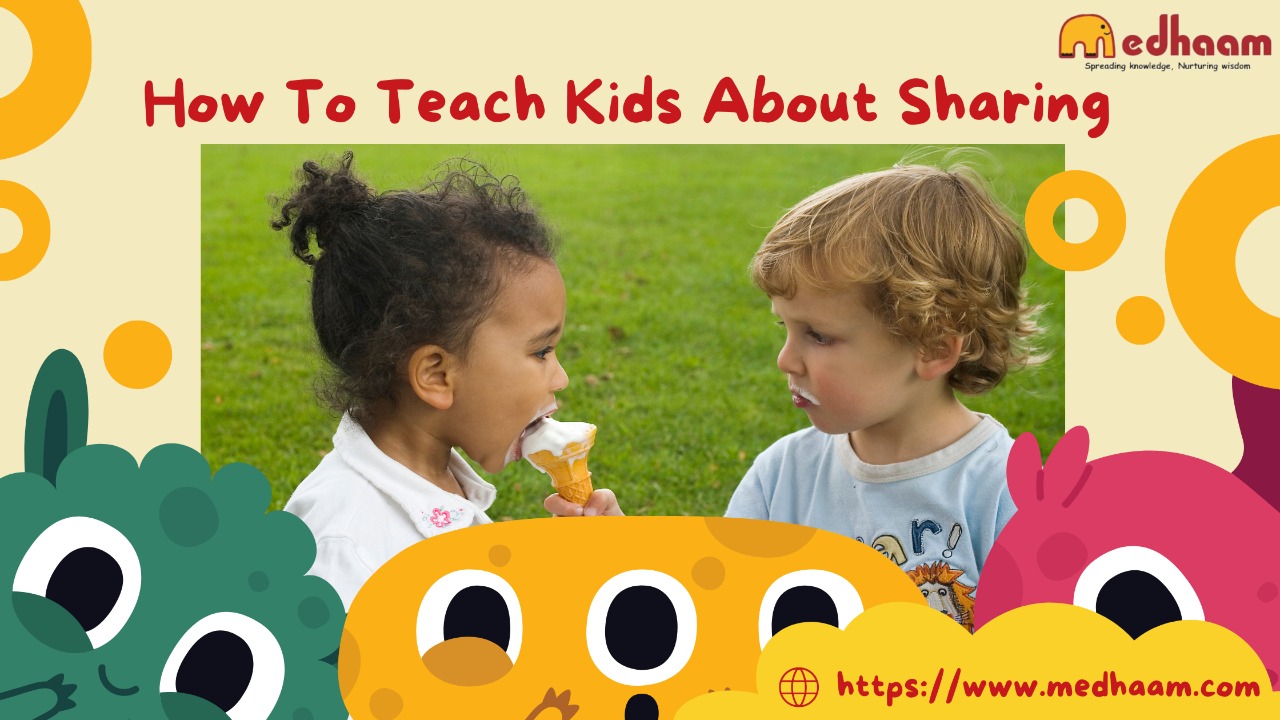Please rotate your device
We don't support landscape mode yet.Please go back to portait mode for the best experience
We don't support landscape mode yet.Please go back to portait mode for the best experience

It's entirely typical for your preschooler to consider sharing precarious. Children for the most part figure out the idea of sharing at about age three. In any case, it will take some time longer before they're ready to make it happen. You can urge your child to share by setting a genuine model and by instructing them to issue settle. Peruse on for additional tips.
For what reason is it Vital to Help Children Share?
Sharing is a central fundamental ability especially when your child is in daycare preschool kindergarten. At the point when your children figure out how to share, he starts to grasp the importance of alternating and giving possibilities. From collaboration, participation, and depending on accomplices and such, sharing fosters this large number of perspectives in their lives. We at Medhaam(Best childcare and kindergarten) concludes some point on How To Teach Kids About Sharing through our childcare and preschool.
Alternating: Are your children playing with the train? Advise them to alternate or share their toys. On the off chance that they don't share, take the toys away and allow them to understand the significance of sharing. Along these lines, in the future, they will not hold back to share and helping out one another as opposed to being childish.
Value Them: Did you simply recognize your child carrying out something to be thankful for by imparting a treat to his companion or kin? Give him a little appreciation and cause him to feel decent. He'll desire that reaction from you once more and certainly share sometime later.
Time It: Perhaps your child faces a test to begin sharing. Setting a clock during playdates is an incredible method for getting the ball rolling. For instance, if your youngster is playing with LEGOs, he has just 10 minutes to assemble anything he loves until it's his sibling's turn. If he has any desire to have another go, he'll need to sit tight for his turn or play with one more toy meanwhile calmly.
Let them know It's Temporary: Assuming your child pitches temper fits over-sharing, let them know that it's not extremely durable however transitory. Children could do without sharing their most significant belongings (and who wouldn't?), yet when they understand it's just for a couple of moments to hours until they get it back, they'll cheerfully oblige.
Bond With Your Children: Kids who are near their folks are more self-secure and less hesitant to share what they have. The explanation for this is since they get sufficient love and friendship from friends and family, they don't sense the need to get that adoration from lifeless things or toys.
Make sense of The Advantages of Sharing: Plunk down with your kid and clear up for them the advantages of sharing. If your kid doesn't impart to other people, he will not get anything all things considered. When he gets this basic idea, he'll gladly share.
Fend Off His Most loved Toys: If your Child is hesitant to share his toys, ask him which ones he might want to share. The ones he doesn't have any desire to, you can store them away on a rack or elsewhere for their playdate. When their companions leave, you can give it back to them. This will gradually assist them with progressing to sharing more important things later on as they get familiar with the demonstration of loaning lesser significant things.
Show Them Partaking, In actuality: Expand the idea of sharing by showering adoration, friendship, and different things, in actuality. Sharing doesn't stop at just food or toys. Help them to impart time and valuable minutes to kin, such as going to the recreation area together or going to the theater as a family. Train them to embrace their kin and offer profound encounters with others as well.
Utilize Various Words: If your kid wonders whether or not to share, you can take a stab at utilizing words like "loaning," "getting", or "getting it back following a couple of hours (or some time)". This will cause them to have a solid sense of reassurance and bound to share once they know that they'll get back what they share. Use words that are not difficult to process and comprehend while making sense of the idea of sharing.
Be A Good example: Your child gains from activities more than words, which is the reason being a good example for sharing is significant. Share a pizza cut or a sandwich with your mate and at whatever point you plunk down to nibble, find out if he needs some of it. By exhibiting offerings to other people and by giving individual models, he'll need to be in the fun as well.
Show Them Good cause: Assuming there are toys your child no longer likes playing with, give them to a noble cause with your youngster's association. Likewise, looking for fresh-the-box new toys to give for a noble cause is a dependable method for summoning a feeling of sympathy and empathy in your children. Go on them on outings to halfway houses and beneficent organizations and urge them to offer a portion of their resources to assist them with acknowledging how sharing makes the world a superior spot and how commitments have an effect.
For more Knowledge about childcare and kindergarten , daycare and kindergarten, childcare and preschool , daycare preschool kindergarten. For more information visit https://www.medhaam.com/